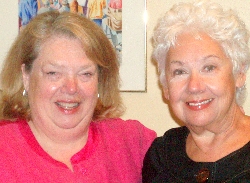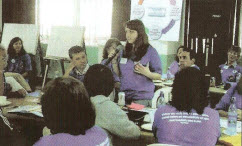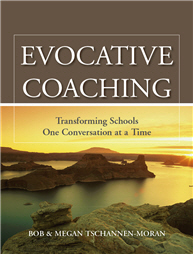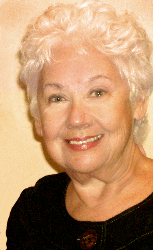Marge Schiller PhD
(PCC Director)
I avoided thinking about 9/11. Even though that day was a life altering experience for me.
I was in New York City when the World Trade Centers were hit. But going back to the shock and grief and fear of being there then was not something I wanted to do.
 9/11 was a defining moment in the USA. People in my country and around the world came together in shock and surprise.
9/11 was a defining moment in the USA. People in my country and around the world came together in shock and surprise.
It was not just the number of deaths; many more people have died in defining moments of war, famine or disaster. It was the vulnerability of our wonderful, optimistic, almost adolescent country.
We were looking at a new reality that brought us both closer together and also further apart from the post 2000 global society.
The new millennium had the USA in a different and (for us) disturbing place in the world order.
On September 11th I was working with seventy senior executives from a Manhattan based hotel chain. To provide context for the management training session I had asked the group the question “Is Then the Same as Now?”
We had just started to talk about changes in the hospitality industry and the world when we heard the news.
Outside the mid town building there was smoke, and ash covered the streets. Because communications were shut down, we even speculated that the USA was at war.
 When Rachel, aged three, was brought to the corporate headquarters by her mother, I took care of the little girl so Lynette could work.
When Rachel, aged three, was brought to the corporate headquarters by her mother, I took care of the little girl so Lynette could work.
As Rachel and I walked around corporate headquarters I saw how her presence affected others. Those who were in shock unfroze. Anyone who had been crying stopped when they heard her voice or saw her sweet face.
That was when I knew that children are the image and voice of hope — especially when we suspect things are hopeless.
That was how the Positive Change Core was initiated — to serve children and youth with strength-focused approaches to schools and learning.
But yesterday I did not want to go back to 9/11.
Yes, that day changed my life — but now what?
The answer showed up on the news and in today’s newspaper.
“We can summon once more that ordinary goodness of America — to serve our communities, to strengthen our country and to better our world.” Barack Obama
Nine One One is a day for Service. The remembrance is in the present. In giving back. Remembrance comes best in being of service to children, youth and others in our community.
That is the greatest memorial for the dead.
That is what 9/11 means to me today.
 Recently the Inquiry Institute conducted an interview with Marge Schiller and Joyce Lemke, two of our well-known PCC members.
Recently the Inquiry Institute conducted an interview with Marge Schiller and Joyce Lemke, two of our well-known PCC members.





